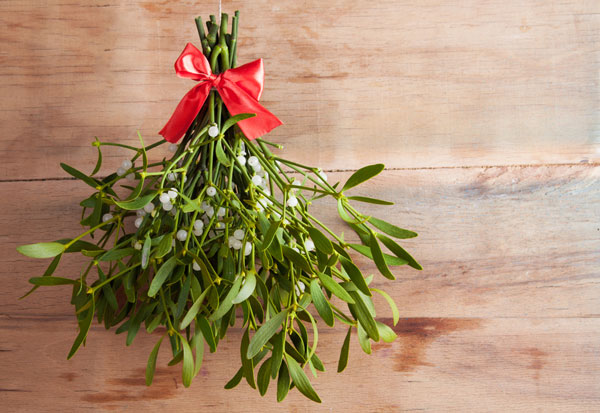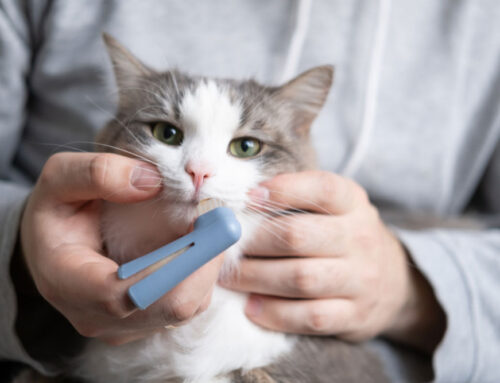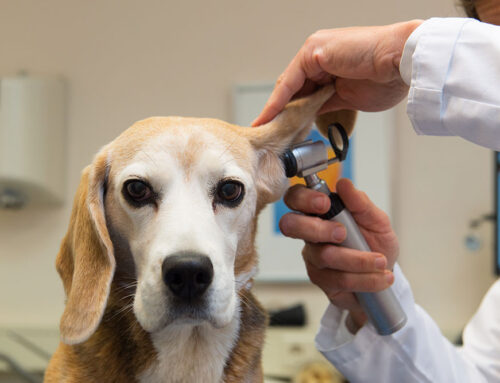With Christmas around the corner, it is time to think about some common holiday plants that can be toxic to our beloved pets. There are a variety of decorative Christmas plants in the house around the holiday season: Christmas trees, Holly, Mistletoe, and Poinsettia. We don’t have to get rid of these holiday favorites but it is important to know the risks that they pose to our pets.
Christmas trees: Indoor pets may ingest needles, cones, branches or bark from the trees. Pets may be exposed to to sap and soluble plant components by drinking the water in the receptacle. In dogs and cats ingestion of evergreen tree material can cause vomiting, anorexia, abdominal pain,and depression. Some varieties of evergreens have sharp needles and/or cones, which may cause mechanical trauma to mucous membranes and the gastrointestinal tract. In most cases clinical signs are expected to be mild and self limiting, although animals with pre existing health problems may be at increased risk for complications, such as dehydration or electrolyte imbalances. Sometimes foreign body obstructions can occur following ingestion of a large amount of plant material. If more than mild intestinal problems occur seek treatment at your veterinarian.
Holly(Ilex Aquifolium): Also known as Christmas holly or English holly, it is a popular holiday ornamental plant with shiny green, spiky leaves and bright red berries. Ingestion generally causes no more than mild gastrointestinal upset due to saponins in the leaves. Clinical signs are vomiting, anorexia, diarrhea, salivation, licking of lips, and head shaking. Pets can also get mild oral ulceration due to mechanical injury from the sharp edges of the leaves. If a large amount is ingested foreign body obstruction can occur. Treatment may be needed to help with the nausea and with sores that occur in the mouth. Take your pet to your veterinarian if more than mild symptoms occur.
Mistletoe(Phoradendron Spp): American mistletoe is used as a christmas decoration in a lot of households. The most common signs in pets that ingest mistletoe are vomiting, depression, diarrhea, and less commonly hypotension. Symptoms are mild and self-limiting in most situations. If a large amount is ingested your pet should be seen by your veterinarian to address possible dehydration, electrolyte imbalances and hypotension.
Poinsettia(Euphorbia Pulcherrima): Poinsettia is another very popular Christmas plant that is brought into many households during the holiday season. Poinsettia was originally thought to be very toxic. It is now known that in small animals, poinsettia ingestion has been associated with mild and self limiting signs only. The milky sap of the poinsettia is irritating to the digestive tract causing hypersalivation, vomiting, and rarely diarrhea. Also skin irritation may be seen if the sap touches the skin. No medical treatment is needed in most cases. Continued vomiting may need to be addressed by your veterinarian to prevent dehydration.
If your pet has ingested any of these popular holiday plants and your are unsure what to do, always contact your veterinarian. You can also call the ASPCA animal poison control line at 888-426-4435. Don’t be afraid to decorate for the Holidays but always exercise caution around your furry kids. We know how they like to get into trouble
Estaiblshed in 1981, Palm City Animal Medical Center is dedicated to providing the best possible care for your pets. With focuses on compassionate care in surgery, physical therapy and rehabilitation, preventative medicine, extensive diagnostics, and emergency service, Palm City Animal Medical Center combines exceptional medical care with a caring philosophy for pets and their owners. For more information, call 772-283-0920, visit www.palmcityanimalmedicalcenter.com or find us on Facebook at www.facebook.com/PalmCityAnimalClinic.








Leave A Comment